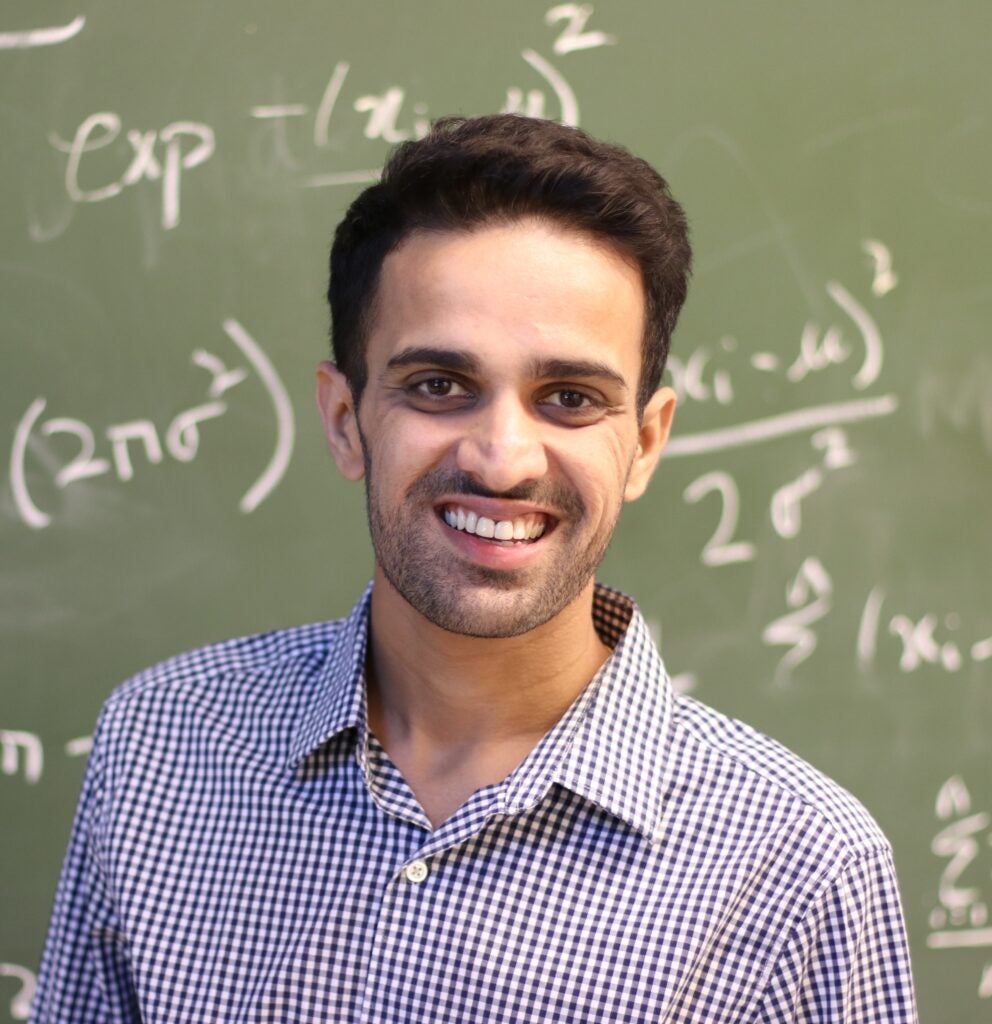CHIBE Q&A with Rahul Ladhania

Learn more about one of CHIBE’s new affiliated faculty members: Rahul Ladhania, PhD, an Assistant Professor of Health Informatics in the School of Public Health at the University of Michigan and a Behavior Change For Good visiting scholar.
What projects bare you working on now?
A large part of my research is focused on using machine learning methods to answer causal questions in the public and behavioral health space. One of the projects that I am working on is personalizing treatment assignment rules to maximize treatment effects, when there are a large number of interventions to choose from. This goes beyond the “what intervention works best” to a “what intervention works best for whom” narrative. We are extending a machine-learning recursive partitioning method to adapt to a setting with a large number of interventions, and where statistical power to capture heterogeneity can become a key challenge. We are applying this method to large multi-arm randomized studies in the behavioral health space.
In another work, I am adapting machine learning approaches on how we can combine observational data with experimental data to estimate heterogeneity in treatment effects. This is relevant in a number of empirical social science settings, where you have large amounts of observational data, which (while large) can’t be used for causal inference unless you make some strong statistical assumptions, and small (but clean) experimental data, which is not large enough for heterogeneity estimation. My other work involves using time series clustering methods on fitness-app data to identify how COVID-19 has affected different types of users.
What has it been like to be a visiting scholar and post-doctoral researcher with the Behavior Change For Good (BCFG) Initiative?
Having been associated with BCFG for a year now, I think I can confidently say that joining BCFG was one of the best decisions I have made in my career, and I have CHIBE to thank for playing a useful role in making that happen. At the 2018 Roybal Retreat, Katy Milkman, who is the Director of BCFG Savings and Health, delivered the keynote presentation on the StepUp study, and it happened to be just before my talk on heterogeneity estimation. I learned of the post-doc position, which also happened to be completely in line with my research interests, at that retreat, and that’s how the ball started rolling and tada… the post-doc happened! So, thanks CHIBE!
Along with the BCFG group’s stellar team of scientists and the impressive research projects pushing the frontiers in behavioral science, I am most grateful to have worked with and be supported by a group of awesome (and genuinely kind!) people – Lyle Ungar, Katy Milkman, Sendhil Mullainathan, Jann Spiess, Dena Gromet, and everyone on the BCFG team. I feel it is rare that one gets to work with such an interdisciplinary group of world-class scientists, and have opportunities to not only develop and apply machine learning methods in real-world complex settings, but also be able to design studies that provide a fertile ground for testing state-of-the-art machine learning approaches.
You’re a cofounder of Friends of Kasam. Can you describe what this nonprofit does?
Friends of Kasam is a nonprofit that my friends and I began in 2014 to support under-privileged high-school students at King’s Matriculation School (KMS) in Kasam (a village in Tamil Nadu, India). We essentially search for one-on-one sponsors and mentors for around 50 students in the school each year, and support their tuition and other programming activities. Most of these students belong to single-parent low-income households in the region, and they wouldn’t have been able to go to school or afford the quality of education that KMS provides. In addition to tuition funding and emergency financial support, we also endeavor to keep the sponsors invested in their students by keeping open lines of communication between them. In some cases, we have been able to sustain these relationships beyond high school, and sponsors have continued to support their students’ college pursuits too.